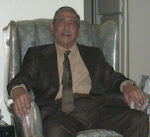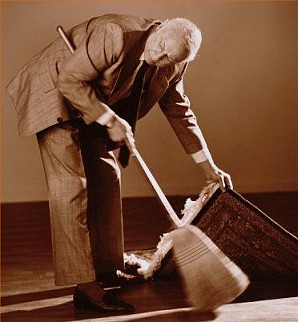Be Alert for Warning Signs
If You Suspect Fraud
If you are the beneficiary of an estate and think the executor is being dishonest, there are several steps you can take.
Consider getting an independent opinion from a probate lawyer who’s not involved in the estate. The attorney can review the last will and testament, probate court filings and any correspondence you’ve had with the executor in an effort to determine whether something is amiss.
Your lawyer can also take your concerns and available evidence to the probate court that’s overseeing the estate or local law enforcement authorities. After they review the evidence, they may decide to take legal action. This could include issuing a court order that requires or forbids the executor from performing certain actions, removing the executor and appointing a replacement, or filing criminal charges.
Regardless of the probate court or law enforcement’s actions, you may also have grounds for a civil lawsuit against the executor. Your probate lawyer can review your situation and tell you if this is a viable option.
Fraud
Sometimes fraud concerning a will or estate isn't discovered until after probate has closed. While the case could be reopened in probate court and a plaintiff could then sue for fraud or undue influence, another remedy, the tortious interference with an expectancy of an inheritance or a gift, has some advantages over a will contest:
Not only is the statute of limitations generally longer for tort actions, but the running of the statute doesn't begin until the discovery of the tort or when it should have been discovered, whereas the statute of limitations for will contests starts when the testator dies.
The tort challenge will not fall under no-contest clauses, since a tort challenge is an in personam action against the tortfeasor but a will contest is an in rem action against the probate estate; hence, a tort action is not considered a will contest, so that if the challenger were a beneficiary under the will that had a no-contest clause, then he would still receive the property even if he loses the tort suit. (If the challenger is not a beneficiary under the will, then he has nothing to lose from a no-contest clause.)
The tort action may be the only remedy available to someone who is neither an intestate heir or beneficiary under the will, since only plaintiffs with a financial stake under the will or intestacy will have legal standing in a will contest.
Because the tort action is in personam, the tortfeasor is personally liable for damages, so the plaintiff can still recover even if the probate property is not available. Furthermore, the successful plaintiff in a tort action can recover pre-judgment interest, attorney's fees, and punitive damages—none of which are recoverable in a will contest.
A lower standard of proof is required. Because the testator is dead, will contests require clear and convincing evidence while a tort action only requires a preponderance of the evidence.
HOW TO HELP SPOT A FRAUDULENT WILL
(AND OTHER FORMS OF ESTATE THEFT)
First, the only direct witness is usually dead by the time the theft is discovered. Young and healthy people are rarely targeted for estate theft. Unfortunately, the terminally ill and elderly are typical targets. They are the most vulnerable and the expected payoff is not far off. Stealing from a person who is physically and mentally weak is far easier than a person with all their faculties and health.
Second, estate theft is often undetected. As stated above, the only direct victim is usually dead by the time the theft is discovered. A case for estate theft is often made out entirely by circumstantial evidence. The family of the deceased victim often accepts an inexplicable/illogical estate plan as “Mom’s wishes”. The family does not know what to look for or how to properly investigate potential theft.
Third, estate theft is almost never prosecuted. The legal burden of “beyond a reasonable doubt” for a criminal conviction is nearly impossible to prove in estate theft cases. Prosecutors often have no choice but to rely on the civil justice system to remedy the theft. Without the threat prosecution, thieves have little deterrent. The Brooke Astor case is a very high profile, but rare, example of criminal charges being filed in a case of alleged estate theft.
(AND OTHER FORMS OF ESTATE THEFT)
First, the only direct witness is usually dead by the time the theft is discovered. Young and healthy people are rarely targeted for estate theft. Unfortunately, the terminally ill and elderly are typical targets. They are the most vulnerable and the expected payoff is not far off. Stealing from a person who is physically and mentally weak is far easier than a person with all their faculties and health.
Second, estate theft is often undetected. As stated above, the only direct victim is usually dead by the time the theft is discovered. A case for estate theft is often made out entirely by circumstantial evidence. The family of the deceased victim often accepts an inexplicable/illogical estate plan as “Mom’s wishes”. The family does not know what to look for or how to properly investigate potential theft.
Third, estate theft is almost never prosecuted. The legal burden of “beyond a reasonable doubt” for a criminal conviction is nearly impossible to prove in estate theft cases. Prosecutors often have no choice but to rely on the civil justice system to remedy the theft. Without the threat prosecution, thieves have little deterrent. The Brooke Astor case is a very high profile, but rare, example of criminal charges being filed in a case of alleged estate theft.
http://www.dcandmdprobatelawyer.com/fraud.htm
SUPERIOR COURT OF THE STATE CALIFORNIA FOR THE COUNTY OF LOS ANGELES
In Re the Estate of EDWINA FULLER CASE NO. BP 135381
PENAL CODE
SECTION 368-368.5
CALIFORNIA
Good luck with that!
Misappropriation [Embezzlement] of Estate Assets - $107,692.30
SUPERIOR COURT OF THE STATE CALIFORNIA FOR THE COUNTY OF LOS ANGELES
PENAL CODE
SECTION 368-368.5
CALIFORNIA
Good luck with that!






















